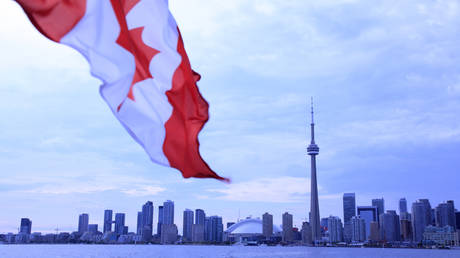
Canada headed for recession – official data
Real GDP was likely unchanged for three months in a row in September, according to official data
Canadian economic performance remained flat in August and likely slipped into a shallow contraction in the third quarter, according to the country’s statistics office.
The slowdown has been attributed to higher interest rates, inflation, forest fires, and drought conditions across the country.
Preliminary data indicated that real GDP was unchanged in September as well, for the third month in a row.
According to the report, services-producing industries increased 0.1% month-on-month, while goods-producing industries contracted 0.2%. Overall, only eight of 20 industrial sectors expanded, according to the figures.
The manufacturing sector contracted 0.6% in August, as non-durable and durable goods manufacturing contributed to the decrease for the third straight month.
The mining, quarrying, and oil and gas extraction sector rose 1.2% in August. “This third consecutive monthly increase brought activity above the April level, before activity fell in May due in part to the impact of the forest fires,” Statistics Canada wrote in its report.
Wholesale trade was up 2.3% in August, while retail business, which shrank for the third month in a row, declined 0.7%. Accommodation and food services fell 1.8% in August, showing a contraction in both subsectors.
Read more
Majority of Canadians fear struggle to feed families
Agriculture, forestry, fishing, and hunting contracted 3.2% in August, its most significant decline since August 2021. The report indicated that crop production (except for cannabis) declined 6.7% in August 2023, mainly due to dry conditions in Western Canada that are pushing down expected yields.
“Whether or not the economy is already in recession is less important than the fact that the lagged impacts of monetary policy are likely to materially depress economic activity moving forward,” Tiago Figueiredo, an economist with Desjardins, told Reuters. “As a result, we expect the economy to more clearly enter a recession in 2024.”
Last week, the Bank of Canada decided to keep its benchmark interest rate steady at 5% for the second straight time during its recent meetings after hiking rates ten times since early 2022. The regulator, however, warned that more increases were possible as it struggles to reign in soaring inflation.
For more stories on economy & finance visit RT’s business section


